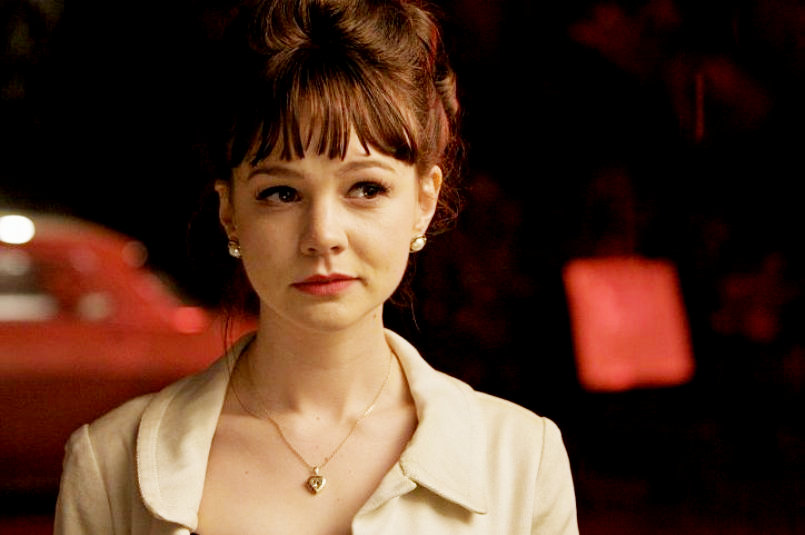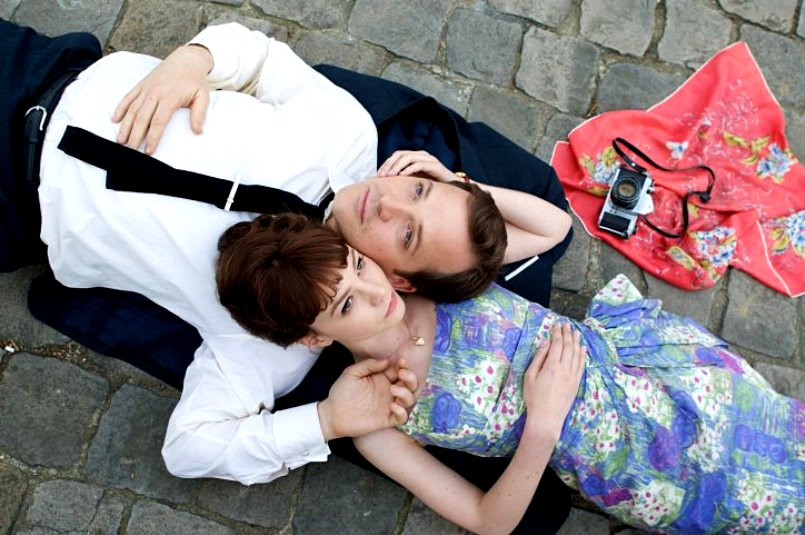
But, all that being said and Mulligan’s future potential aside, I didn’t find An Education to be all that interesting a film, sadly. And if you took her away from its center, you wouldn’t be left with very much movie at all. Here’s the set-up: It’s 1961, and while Betty Draper is chafing at the oppressive confines of suburban domesticity in the former colonies, young Jenny (Mulligan) is being groomed for an Oxford education by her social-striver parents (Alfred Molina and Cara Seymour) and her elite private girl’s school, mainly just so she can go get her M.R.S. Her English teacher Miss Stubbs (Olivia Williams) thinks Jenny should aim much higher than a well-off husband and pursue the academic life she seems clearly suited for. But Jenny — a budding Francophile and connoisseur of fine art, fine literature, and fine smokes — wants more out of life than either the domestic or academic path provides.
Enter David (Peter Sarsgaard), a thirty-something fellow who spies Jenny out in the rain with her cello one afternoon and offers her a ride home in his spiffy automobile. This should probably set off bells and alarms for Jenny (and her parents, who soon meet this potential beau and rather illogically warm to him), even if they’ve never heard the Police song. But, as we’re still a few years shy of Emma Peel and Swinging London, or for that matter the lads from Liverpool, David seems like a pretty good opportunity of escape for young Jenny. He goes to concerts and auctions in the city, hangs out with interesting people (Dominic Cooper) and their well-meaning girlfriends (Rosamund Pike), and generally seems to be much more a Citizen of the World than anyone in the stuffy suburbs. But is it possible that David is just too good to be true? Well, it wouldn’t be much of a movie otherwise, now would it? And sure enough, one she gets past all the preening finery and being tipped in cigarettes, Jenny finds herself peering into the corners of a very Dark Life.
There are a lot of little things that don’t really work in An Education. Some of the characters are written too broadly. particularly Alfred Molina as Jenny’s overbearing-with-a-heart Pop and poor Rosamund Pike as a dim bulb London party-girl. The ending seemed way too overdrawn to me — Yes, adulthood is mostly a condition imposed by the passage of time, but I still think it takes more than one dodgy and/or bad relationship to become mature and worldly-wise. And, like I said above, I don’t think it makes much sense, given how protective they are of her at first, that Jenny’s folks would go along for the ride as they do here. They would have to be willfully obtuse not to catch on what a weekend in Paris would entail, for example.
That being said, the biggest problem here is that Peter Sarsgaard seems miscast to me. He’s an actor I usually root for, but he’s way too creepy to be plausible as a suitor Jenny might actually be interested in. (Either that, or he carries the baggage from too many creepy roles in the past. As David Edelstein noted, he gives off a definite Malkovich vibe here, and the occasionally slipping accent doesn’t help.) This is a part I could see Ewan MacGregor or James McAvoy or Orlando Bloom (originally cast in the Dominic Cooper role) pulling off with more aplomb. But Sarsgaard just seems too blockish and needy to me in the part, and any gal as ostensibly on-the-ball as Jenny is portrayed here to be would see through his wheedling and double-talk pretty quickly, I should think. Just because the year is 1961 doesn’t mean young women (and their parents) can’t spot an obviously bad apple. But here’s hoping Mulligan fares better in her next few roles, which are no doubt forthcoming.

